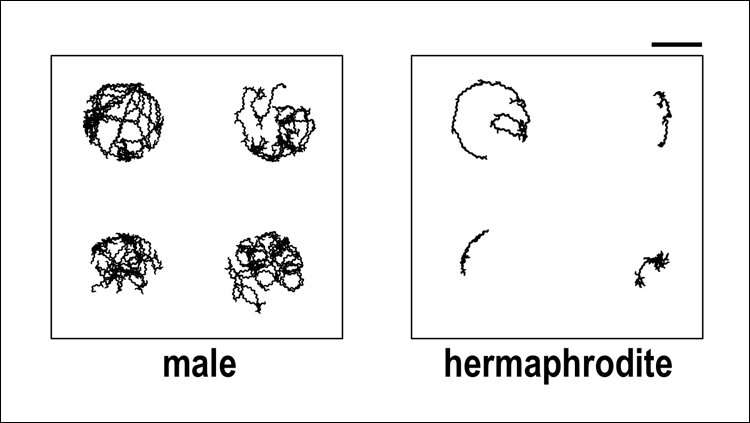Dopamine regulates sex differences in worms

Dopamine is responsible for sex-specific variations in common behaviors, finds a study of worm movements published in JNeurosci.
The research demonstrates how the same neurotransmitter can contribute to sex differences, a finding that could have implications for mental disorders.
Male and hermaphrodite roundworms (Caenorhabditis elegans) have distinct strategies for finding food and mates.
Satoshi Suo and colleagues found the neurotransmitter dopamine has opposite effects on these behaviors that supports each sex's strategy.
Dopamine increases locomotor activity in males, which need to move around to find a mate, while reducing the same activity in hermaphrodites, which can reproduce asexually and may conserve energy by staying in place.
The researchers show that dopamine acts through different molecular pathways to give rise to these sex differences.
More information: Sexually Dimorphic Regulation of Behavioral States by Dopamine in Caenorhabditis elegans, JNeurosci (2019). DOI: 10.1523/JNEUROSCI.2985-18.2019




















